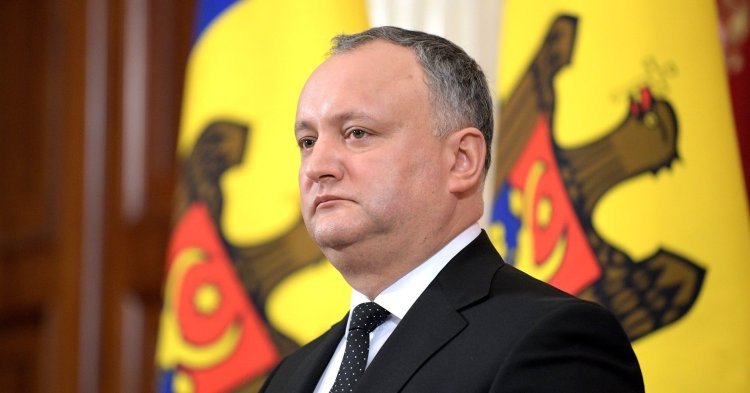“The suicidal act” proves poor results
In accordance with his pro-Russian line, Dodon’s meeting with Vladimir Putin was his first item on the agenda. The two heads of state met in January, on which occasion Dodon constantly reiterated his will to stay closer to Russia and to improve the countries’ overall relations. Dodon blamed the Moldova–European Union Association Agreement – which he described as a “suicidal act” in 2015 – for having yielded poor results, and above all for worsening the pre-existing situation in international commercial relations in terms of financial outcomes, an assessment infirmed by factual data. Hence, he sustains the idea of a referendum for repealing the agreement. Instead, Igor Dodon stated he wants Moldova to enter the Eurasian Economic Union. As a first step in this direction, Chisinau will request to be an observatory centre, after signing a memorandum of cooperation in April.
As a present from his political idol, Vladimir Putin, Igor Dodon received a map of the whole territory of Moldova as part of Romania prior to the annexation of a part of it to the Russian Empire in 1812. The comment he made on this shows clearly his political directions to the East: “Had the Russian Empire not stopped at the Prut river, our country would now be whole”. In other words, he said it would have been better if the Russian Empire had annexed a larger part of Moldova.
NATO Liaison Office as a challenge to neutrality
The much-desired closer approach to the Eurasian Economic Union goes hand in hand with a strong resistance against the opening of a NATO Liaison Office in Chisinau in April this year. During the meeting with EU and NATO officials in Brussels a few days ago, Igor Dodon explained his position by invoking the Transnistrian conflict. The president expressed the same concern on his Facebook page:
“The NATO Liaison Office would make more difficult negotiations regarding the settlement of the Transnistrian conflict. Reintegration of the country is among the main topics on my agenda as head of state, and I am convinced that we now have opportunities to find new solutions in this regard. I also proposed the signing of a NATO – Moldova agreement on the recognition of the neutrality of our country. We agreed to work with experts to further examine this topic.”
However, his declarations at the press conference with Deputy Secretary General of NATO Rosa Gottemoeller do not impact the opening of the Liaison Office, and the agreement is in force, with the opening due in April.
Where to next?
While Dodon is grateful to the EU and NATO for the help Moldova has received in the past years, he wants to turn to Russia and break the Europeanisation path Moldova has slowly taken since 2009. Somehow, he presents himself a bit paternalistic, which does not correspond to reality – lots of Moldovans continue to share online the message: “Dodon, you’re not my president”, as they think he does not correctly represent the aspirations of his people. As head of state, he does not have the political power to make significant changes, but his political discourse is quite forceful, and in a country where propaganda works well, such as Moldova, it is important that nostalgia for communism does not revive with the new president.
As elections have recently passed and the other parties on the political stage are not very animated at the moment, the fate of Moldova remains to be seen. The 2018 parliamentary elections will be without question a turning point, for better or for worse.

Follow the comments: |
|
